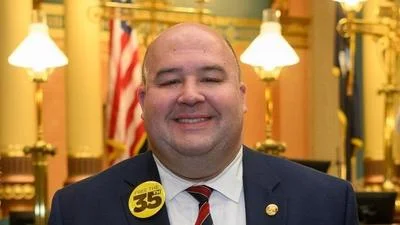Sandy K. Baruah President and Chief Executive Officer at Detroit Regional Chamber | Official website
Sandy K. Baruah President and Chief Executive Officer at Detroit Regional Chamber | Official website
The Detroit Regional Chamber recently hosted Michigan State Treasurer Rachael Eubanks and State Budget Director Jen Flood to discuss the state's budget for the upcoming fiscal year and recommendations for fund distribution.
Eubanks emphasized that predicting revenues and managing expenditures is central to the process within one of the largest treasuries in the country. This involves analyzing current economic conditions, particularly inflation, consumer goods and services, and interest rates, which have largely recovered from the COVID-19 pandemic.
“That is the number one predictor of how our revenues are going to perform as a state,” she said.
Revenue estimates are derived from agreements made during biannual revenue estimating conferences. These estimates are then converted into economic components before being turned into state revenues, which require legislative approval.
Strategic Investments and ‘Historic’ Achievements
Flood outlined fiscally responsible goals in the FY25 budget, including enhancing education, reducing crime, improving infrastructure, and expanding healthcare access. The state has also paid down $21 billion of debt since Governor Gretchen Whitmer took office and achieved an all-time high rainy-day fund of $2.2 billion.
Significant allocations were made toward free preschool, ongoing classroom support, investments in student mental health and safety, as well as programs to enhance literacy and innovative practices.
“And while state government can’t solve inflation on its own, we’ve been laser-focused on what we can do to bring down costs for small businesses and for families,” Flood said. “Between the preschool, [its] meals, community colleges, and the [Michigan] Achievement Scholarship, we’re saving families almost $50,000 per student.”
Future Priorities
During a Q&A session with the audience, Flood mentioned that approximately $320 million has been set aside for legislative priorities in economic development. This includes increasing research & development (R&D) and SOAR redevelopment to support Michigan’s business environment. She also briefly addressed plans regarding Michigan’s upcoming Paid Leave and Minimum Wage updates beginning in February 2025.
“I just don’t think we’re at a point yet where we understand the implications,” Flood said. “This will be a big conversation heading into the January revenue meeting.”





 Alerts Sign-up
Alerts Sign-up